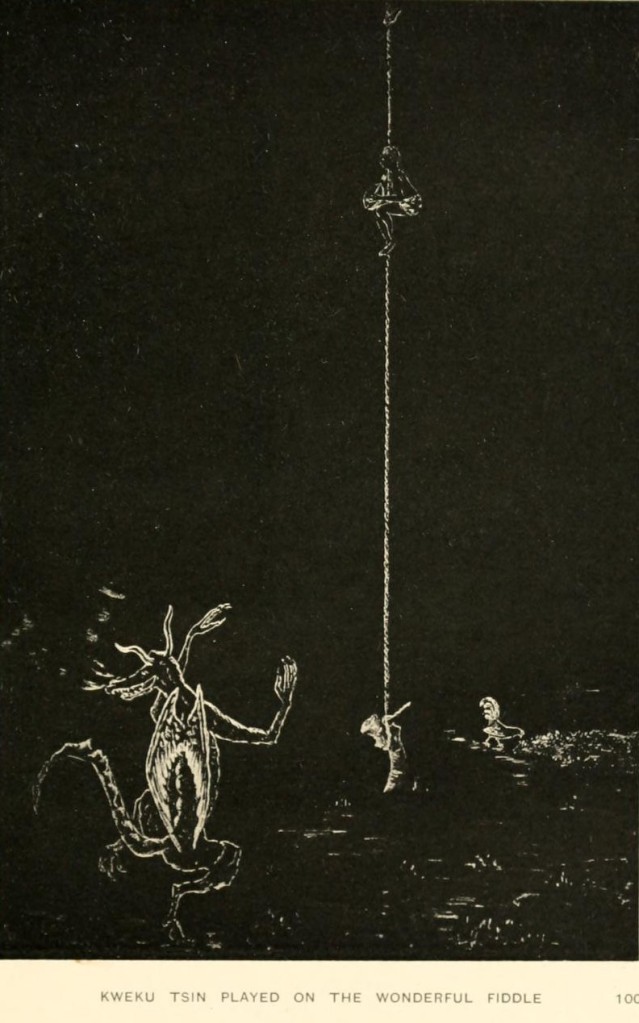MORNING SUNRISE
A MAN in one of the villages had a very beautiful daughter. She was so lovely that people called her “Morning Sunrise.” Every young man who saw her wanted to marry her. Three, in particular, were very anxious to have her for their wife. Her father found it difficult to decide among them. He was determined to find out by a trick which of the three was most worthy of her.
He bade her lie down on her bed as if she were dead. He then sent the report of her death to each of the three lovers, asking them to come and help him with her funeral.
The messenger came first to “Wise Man”. When he heard the message, he exclaimed, “What can this man mean? The girl is not my wife. I certainly will not pay any money for her funeral.”
The messenger came next to the second man. His name was “Wit”. The latter at once said, “Oh dear, no! I shall not pay any money for her funeral expenses. Her father did not even let me know she was ill.” So he refused to go.
“Thinker,” the third young man — when he received the message — at once got ready to start.
“Certainly I must go and mourn for Morning Sunrise,” he said. ” Had she lived, surely she would have been my wife.” So he took money with him and set out for her home.
When he reached it her father called out, ” Morning Sunrise, Morning Sunrise. Come here. This is your true husband.”
That very day the betrothal took place, and soon after the wedding followed. ” Thinker ” and his beautiful wife lived very happily together.
The End
HONORABLE MINU
IT happened one day that a poor Akim-man had to travel from his own little village to Accra — one of the big towns on the coast. This man could only speak the language of his own village — which was not understood by the men of the town.
As he approached Accra he met a great herd of cows. He was surprised at the number of them, and wondered to whom they could belong. Seeing a man with them he asked him,
” To whom do these cows belong?”
The man did not know the language of the Akim-man, so he replied, ” Minu ” (I do not understand).
The traveler, however, thought that Minu was the name of the owner of the cows and exclaimed, “Mr Minu must be very rich.”
He then entered the town. Very soon he saw a fine large building, and wondered to whom it might belong. The man he asked could not understand his question so he also answered, “Minu.”
“Dear me ! What a rich fellow Mr Minu must be ! ” cried the Akim-man.
Coming to a still finer building with beautiful gardens round it, he again asked the owner’s name. Again came the answer, ” Minu.” ” How wealthy Mr Minu is,” said our curious traveler.
Next he came to the beach. There he saw a magnificent steamer being loaded in the harbor. He was surprised at the great cargo which was being put on board and inquired of a bystander, “To whom does this fine vessel belong?”
“Minu,” replied the man. “To the Honorable Minu also! He is the richest man I have ever heard of! ” cried the Akim-man.
Having finished his business, the Akim-man set out for home. As he passed down one of the streets of the town he met men carrying a coffin, and followed by a long procession, all dressed in black. He asked the name of the dead person, and received the usual reply, ” Minu.” ” Poor Mr Minu ! ” cried the Akim-man. “So he has had to leave all his wealth and beautiful houses and die just as a poor person would do ! Well, well — in future I will be content with my tiny house and little money.” And the Akim-man went home quite pleased to his own hut.
The End
WHY THE MOON AND THE STARS RECEIVE THEIR LIGHT FROM THE SUN

ONCE upon a time there was great scarcity of food in the land. Father Anansi and his son, Kweku Tsin, being very hungry, set out one morning to hunt in the forest. In a short time Kweku Tsin was fortunate enough to kill a fine deer — which he carried to his father at their resting-place.
Anansi was very glad to see such a supply of food, and requested his son to remain there on guard, while he went for a large basket in which to carry it home. An hour or so passed without his return, and Kweku Tsin became anxious. Fearing that his father had lost his way, he called out loudly, “Father, father!” to guide him to the spot.
To his joy he heard a voice reply, ” Yes, my son,” and immediately he shouted again, thinking it was Anansi. Instead of the latter, however, a terrible dragon appeared. This monster breathed fire from his great nostrils, and was altogether a dreadful sight to behold. Kweku Tsin was terrified at his approach and speedily hid himself in a cave nearby.
The dragon arrived at the resting-place, and was very annoyed to find only the deer’s body. He vented his anger in blows upon the latter and went away.
Soon after, Father Anansi made his appearance. He was greatly interested in his son’s tale, and wished to see the dragon for himself. He soon had his desire, for the monster, smelling human flesh, hastily returned to the spot and seized them both. They were carried off by him to his castle, where they found many other unfortunate creatures also awaiting their fate.
All were left in charge of the dragon’s servant — a fine, white cock — which always crowed to summon his master, if anything unusual happened in the latter’s absence. The dragon then went off in search of more prey.
Kweku Tsin now summoned all his fellow-prisoners together, to arrange a way of escape. All feared to run away — because of the wonderful powers of the monster. His eyesight was so keen that he could detect a fly moving miles away. Not only that, but he could move over the ground so swiftly that none could outdistance him. Kweku Tsin, however, being exceedingly clever, soon thought of a plan.
Knowing that the white cock would not crow as long as he had grains of rice to pick up, Kweku scattered on the ground the contents of forty bags of grain — which were stored in the great hall. While the cock was thus busily engaged, Kweku Tsin ordered the spinners to spin fine hempen ropes, to make a strong rope ladder. One end of this he intended to throw up to heaven, trusting that the gods would catch it and hold it fast, while he and his fellow-prisoners mounted.
While the ladder was being made, the men killed and ate all the cattle they needed — reserving all the bones for Kweku Tsin at his express desire. When all was ready the young man gathered the bones into a great sack. He also procured the dragon’s fiddle and placed it by his side.
Everything was now ready. Kweku Tsin threw one end of the ladder up to the sky. It was caught and held. The dragon’s victims began to mount, one after the other, Kweku remaining at the bottom.
By this time, however, the monster’s powerful eye-sight showed him that something unusual was happening at his abode. He hastened his return. On seeing his approach, Kweku Tsin also mounted the ladder — with the bag of bones on his back, and the fiddle under his arm. The dragon began to climb after him. Each time the monster came too near the young man threw him a bone, with which, being very hungry, he was obliged to descend to the ground to eat.
Kweku Tsin repeated this performance till all the bones were gone, by which time the people were safely up in the heavens. Then he mounted himself, as rapidly as possible, stopping every now and then to play a tune on the wonderful fiddle. Each time he did this, the dragon had to return to earth, to dance — as he could not resist the magic music. When Kweku was quite close to the top, the dragon had very nearly reached him again. The brave youth bent down and cut the ladder away below his own feet. The dragon was dashed to the ground — but Kweku was pulled up into safety by the gods.
The latter were so pleased with his wisdom and bravery in giving freedom to his fellow-men, that they made him the sun — the source of all light and heat to the world. His father, Anansi, became the moon, and his friends the stars. Thereafter, it was Kweku Tsin’s privilege to supply all these with light, each being dull and powerless without him.
The End
